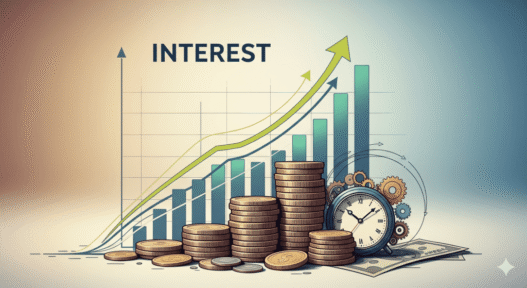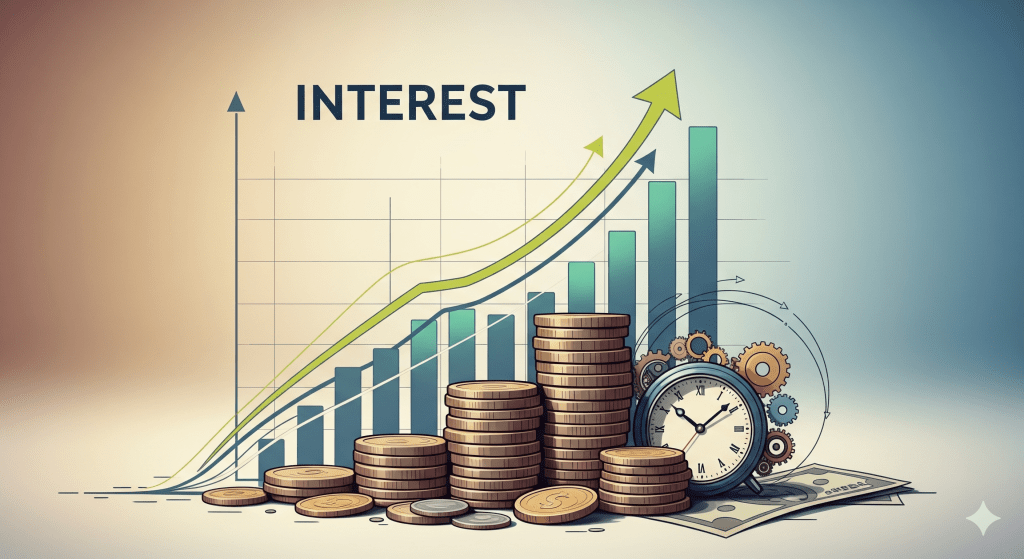Interest is one of the most fundamental concepts in personal finance—affecting everything from savings accounts to credit cards and mortgages. Whether you're earning or paying interest, understanding how it works can help you save thousands (or avoid costly mistakes). In this guide, we'll explore what interest is, types of interest, how it's calculated, and why it matters for your financial future.
What Is Interest?
At its core, interest is the cost of borrowing money or the reward for lending it. Borrowers pay interest as compensation for using a lender's funds, while depositors earn interest when banks use their money for lending and investment purposes (Investopedia, Wikipedia).
Interest is typically expressed as a percentage of the principal, which is the original sum borrowed or invested.
Simple Interest vs. Compound Interest
There are two primary ways interest is calculated:
-
Simple Interest – Calculated only on the principal. The formula is Simple Interest = Amount Borrowed × Interest Rate × Time (Investopedia, Wikipedia).
-
Compound Interest – Calculated on the principal plus previously earned interest. Where A = Total amount, P = Amount Originally Borrowed (Principal), r = Interest Rate, n = number of time the interest is applied per time period, and t = time periods elapsed. Compound interest can accelerate the growth of your debt (or earnings) because you owe (or earn) interest on top of interest, especially with frequent compounding (Business Insider)
-
Example: Saving $1,000 at 5%, compounded annually, grows to about $1,157 after 3 years.
-
Real-World Examples: Borrowing vs. Saving
Borrowing (Loans & Credit Cards)
When you take out a loan, interest is the additional cost you pay on top of the borrowed amount. The Annual Percentage Rate (APR) includes interest plus fees to show the true cost of borrowing (Gainbridge, Business Insider).
Credit card interest is particularly expensive because it's compounded daily, meaning unpaid balances grow quickly if you only make minimum payments (Fulton Bank, Investopedia).
Saving (Bank Accounts & CDs)
On the flip side, banks pay you interest when you keep money in savings accounts, certificates of deposit (CDs), or money market accounts. Most of these accounts use compound interest, helping your money grow steadily over time (PNC, Business Insider, Crediful).
Factors that Influence Interest Rates
Several factors determine how much interest you'll pay or earn:
-
Risk & Creditworthiness: Lenders charge higher rates to borrowers with poor credit scores due to increased risk (Investopedia, Business Insider).
-
Economic Conditions: Central banks, such as the Federal Reserve, adjust benchmark rates to control inflation and economic growth. These decisions directly impact borrowing and savings rates (Investopedia, Business Insider).
-
Loan Type & Duration: Long-term loans like mortgages often carry different rates than short-term loans. Fixed and variable interest loans also behave differently depending on market changes (Gainbridge, Wikipedia).
Why Understanding Interest Matters
-
Maximize Savings Growth
Choosing accounts with frequent compounding ensures your savings grow faster (Crediful, Business Insider). -
Minimize Borrowing Costs
Paying off high-interest debt, especially from credit cards, saves money in the long run since compounding can dramatically increase what you owe (Fulton Bank, Investopedia). -
Smarter Financial Decisions
Knowing the difference between APR, APY, nominal, and effective rates lets you compare loans and savings products more accurately (Investopedia).
Quick Checklist for Borrowers & Savers
-
Always compare APR (for loans) and APY (for savings) instead of just the nominal rate.
-
Pay attention to compounding frequency—daily compounding boosts savings but can make debt grow faster.
-
Watch economic trends if you have variable-rate loans.
-
Use formulas to estimate savings growth or debt repayment.
Conclusion
Interest is much more than just a fee, it's a powerful financial tool that can either help grow your wealth or drain it if not managed wisely. By understanding how simple and compound interest work, how rates are set, and how to compare financial products, you can make smarter money decisions and secure your financial future.



















